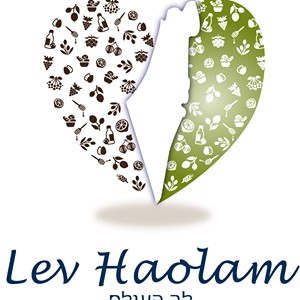Smell is the hidden sense of Purim. It is also the most essential, which befits Megillat Esther, in which the most significant parts of the story are hidden. Purim is a holiday that rouses the senses. We engage in the mitzvah of hearing the megillah chanted aloud, we eat symbolic foods like hamentashen, we watch colorful costume parades, and we reach out and touch others through sharing Purim gifts, called mishloach manot.
Both Mordechai and Esther, the two heroes of the story, are compared to scents.
The Talmud explains that Mordechai’s name can be found in parsha Ki Tissa (Ex. 30:23), which states G-d’s command to Moses to create a fragrant oil of spices that will anoint and consecrate the Ohel Moed (Tent of Meeting), the ark, the altar, lampstand, table and utensils. This sacred oil’s first ingredient is mar deror or myrrh. In Aramaic, mar deror translates to mira dachyia, which, when said with a bit of an accent and a slight slurring of the tongue, sounds remarkably like Mordechai (B.T. Chullin 139b). Although a winding path of logic, Mordechai’s connection to the sense of smell showcases the power of his holy perfume, which had the ability to help save the Jewish People in the Purim story.
Esther’s connection to scents can be seen through her Hebrew name, Hadassah (B.T. Megilla 10b), derived from the word hadas, meaning myrtle, which is one of the four species used on Sukkot, particularly prized for its fragrance (B.T. Sukkot 37b). However, her given name of Esther – אסתר – comes from the root meaning hidden, and contains an even more nuanced relationship to scent, G-d, and Gan Eden.
When spelled backwards, these letters represent the initials of the words for rosh (head/top), toch (middle), and sof (end). These are combined with the letter aleph, which is not only the beginning of the Aleph Bet, but moreover, serves as a euphemism for G-d’s holy four letter name.
Thus, only through smell, we can once again attain that state of G-d consciousness. Each week, we are invited into that opportunity through the ritual of havdalah. After reciting, “…and for the Jews there was light, happiness, joy and honor” (Esther 8:16), we continue by offering brachot, including one that expressing our gratitude to G-d for “borei minei v’samim,” creating species of fragrance.
The Shulchan Aruch (O.C. 297:1) explains that we smell these sweet spices in an attempt to comfort ourselves from the sadness of losing our nishama yitera (additional soul, B. T. Taanit 27b), which enriches our capacity to experience the love, unity, and peace of Shabbat, our mini-taste of Gan Eden each week. These spices have the ability to arouse within us the knowledge and conscious memory that the God-consciousness is ever-present all week long, even if it is often hidden from our view.
“The sense of smell is the most spiritual of all senses. The Hebrew word for “smell” (רֵיחַ) is cognate to the word for “spirit” (רוּחַ). The sages teach us that smell is the one and only sense that “the neshama -soul enjoys and not the body- haguf.” As noted, in Hebrew, “soul” is a permutation of Menasheh. The name Menasheh (מְנַשֶׁה) permutes to spell “soul” (נְשָׁמָה). Menasheh represents the sense to reveal the Divine soul in Israel.… In one place in the Torah, Moses is called Menasheh, for Menasheh is Moses (מֹשֶׁה) with an additional Nun.
The sense of smell is the only sense (of the five senses) that did not participate, and thereby was not blemished or polluted, in the sin of man in the Gan Aden. It is the sense which saved the Jewish people in the time of Mordechai and Esther, who are called Mor veHadas (“Myrrh and Myrtle-Hadas,” the two primary sources of fragrance).
Furthermore, it is explicitly stated that the sense of Mashiach is the sense of smell. “And he shall smell with the awe of God”—”he shall judge by smell” (rather than by sight or hearing. Isaiah 11:3; Sanhedrin 93b). By his sense of smell (his “neshama-soul”) the Mashiach will know how to connect each Jewish soul to its Divine root, and thereby identify its tribe (branch) in Israel.”
Scientists confirm that the olfactory receptors are our oldest sense and are most highly connected to our emotions and memory. This is why the smell of your grandmother’s kitchen, or a beloved’s perfume, can elicit memories and emotions quicker and more intensely than our other senses.
As we smell, chemicals and air enter our nose and connect to our brain, allowing us to remember that which we might otherwise forget. Smells guide us back to Gan Eden, to a place in which the duality of “cursed be Haman” and “blessed be Mordechai” do not exist. This place, beyond our rational mind, requires that we become l’bsumei, intoxicated with a fragrance powerful enough to subdue our ego and intellect so we can see beyond our human perception into G-d-Eternal presence.
Purim offers us a chance to imagine and live in this state of being, remembering the hidden secret beyond the confusion of our human existence by inhaling the scent of God-consciousness. As our mind whirls around in the desire to make sense of the senselessness of the Purim story and our own lives, we can become aware of G-d’s presence in the air and return to our natural state of being: a place in which – perhaps, if we are very still – we can recall the moment when the ruach hakodesh (the holy breath) blew into our nostrils and created our living being.
Like smelling salts, the aroma of Purim can revive us, providing clarity of G-d- Eternal presence with a single whiff of sweet, reyach nichoach, pleasing fragrance. R.S. 2011 ©



















